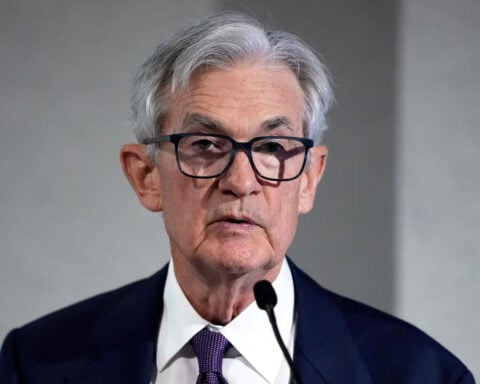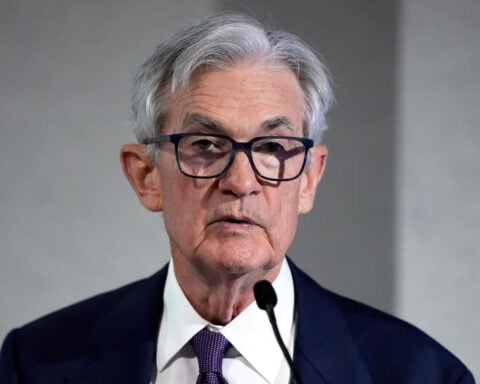In the world of glitter and glamour, reality TV stars are now pushing for more concrete recognition, seeking union protections. The reality TV industry, which has long been the stepchild of the entertainment world, is witnessing an uprising led by well-known figures like Bethenny Frankel, former star of the "Real Housewives of New York City". The call for unionization comes at a critical time when Hollywood's labor movement is already experiencing dual strikes by writers and actors guilds.
Frankel, who catapulted to fame with her reality TV stints and later sold her Skinnygirl cocktail business for an estimated $120 million, has emerged as an unlikely champion for the rights of reality TV workers. In a series of Instagram posts, she implored her fellow unscripted performers to pursue union protections and demand industry-wide standards. This includes a minimum fee of $5,000 per episode, a 10% pay hike each season, and the choice to negotiate further increases if the show proves successful.
"Reality stars are the stepchildren, the losers, the mules, the packhorses, the ones that the entertainment industry is going to rely on right now to carry the water and do the heavy lifting when real stars — real A-list Hollywood — is on strike," said Frankel in one of the videos.
Frankel's call for action is in sync with the ongoing labor movement in Hollywood. After a lengthy strike, the Writers Guild of America finally negotiated a deal with Hollywood studios, highlighting the networks' reliance on unscripted programming. The Screen Actors Guild-American Federation of Television and Radio Artists (SAG-AFTRA), whose 160,000 members are currently on strike, released a statement backing Frankel's campaign. Reality TV performers were urged to join the guild in order to protect themselves from the exploitation of the talent used in the industry.
Despite the support, some advocates fear that the push to unionize reality TV talent might lose traction when Hollywood resumes full operations. Shab Azma, founder of Arc Collective and representative of unscripted TV talent, voiced this concern, admitting it was a bittersweet moment. While unions were securing what they needed, a whole group of people without a union were left wanting.
Following Frankel's call to action, she partnered with renowned showbiz attorneys Mark Geragos and Bryan Freedman to probe the treatment of people on unscripted shows. In August, the legal team sent a stern letter to NBCUniversal, accusing them of inhumane and grotesque mistreatment on set and condemning their use of nondisclosure agreements. The letter claimed these agreements prevented people from voicing their grievances about misconduct.
In response, a Bravo spokesperson clarified that confidentiality clauses were standard practice in reality TV to keep storylines from being leaked. However, these agreements did not bar cast or crew from raising their voices against unlawful or inappropriate behavior on set. The network further stated that it was working with production companies to ensure workers felt comfortable reporting such issues.
The reality TV industry, once dismissed as a filler during the 2007-08 writers' strike, has evolved into a mainstay for networks and streaming services. It's not just popular among viewers but is also economical to produce compared to scripted TV. With reality TV firmly established in pop culture, some stars are aiming to secure similar pay and benefits as their counterparts in scripted TV.
Reality TV stars, often seen as fame-seeking opportunists, are now demanding recognition for their talent in turning their lives into entertainment. While their jobs don't require them to memorize scripts or master accents, reality TV can be as mentally taxing and physically demanding as any other role. Participants are required to provide extensive access to their lives, documented over long days of shooting, to capture authentic moments that make shows like "The Bachelor," "Love Island," and "Real Housewives" worth watching.
For most veteran reality performers, becoming the next Kim Kardashian or Meryl Streep is an unreachable dream. Few have the power to negotiate large salaries, and most do not receive residual payments for appearances on camera. Because there are no pay scale standards for unscripted talent, the size of a paycheck can vary significantly. Depending on the network, type of show, and individual bargaining power, salaries can range from as low as $1,000 per episode to high six figures per season. Some may even agree to appear on TV for free.
While reality TV stars are not alone in their fight for better pay and working conditions, the path to unionization is fraught with challenges. A successful labor movement requires a powerful leader unafraid of making enemies. Frankel, despite her efforts, is a controversial figure, and many fans view her skeptically. Her behavior on social media can be erratic and cringe-worthy, leading to doubts about her suitability to lead the movement.
Furthermore, garnering sufficient support from talent may be difficult. The lure of instant fame may outweigh the desire for robust collective labor protections. Professor of media, culture, and communication at New York University Susan Murray notes that the concept of "reality TV" is based on the assumption that everyone wants a piece of the spotlight. The 'deal' made by reality TV stars is that they would do whatever it takes to have their names in lights, and there will always be more than enough individuals to fill the roles.
The campaign to unionize, if successful, could lead to fewer shows and a greater incentive to replace veteran stars with new, cheaper talent. Shows would become more expensive and less appealing for producers, who would have to meet pay requirements and contribute to health and pension programs. Nonetheless, Hollywood's hot labor summer has underscored the essential role of unscripted TV, and the stars may have more leverage now than ever before.

 Trump has begun another trade war. Here's a timeline of how we got here
Trump has begun another trade war. Here's a timeline of how we got here
 Canada's leader laments lost friendship with US in town that sheltered stranded Americans after 9/11
Canada's leader laments lost friendship with US in town that sheltered stranded Americans after 9/11
 Chinese EV giant BYD's fourth-quarter profit leaps 73%
Chinese EV giant BYD's fourth-quarter profit leaps 73%
 You're an American in another land? Prepare to talk about the why and how of Trump 2.0
You're an American in another land? Prepare to talk about the why and how of Trump 2.0
 Chalk talk: Star power, top teams and No. 5 seeds headline the women's March Madness Sweet 16
Chalk talk: Star power, top teams and No. 5 seeds headline the women's March Madness Sweet 16
 Purdue returns to Sweet 16 with 76-62 win over McNeese in March Madness
Purdue returns to Sweet 16 with 76-62 win over McNeese in March Madness








